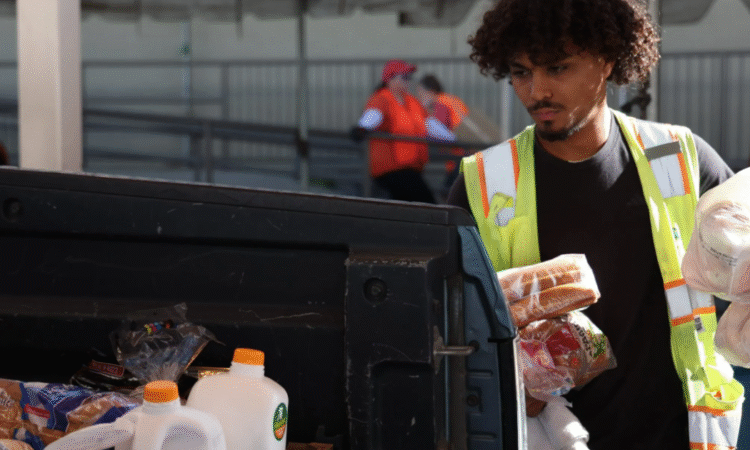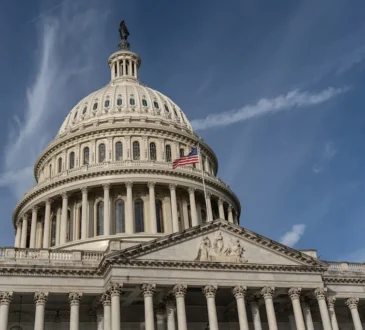From Navajo to Cherokee, tribes scramble as SNAP benefits lapse in federal shutdown

Coverage of tribal natural resources is supported in part by Catena Foundation
The Navajo Nation is bracing for the gap in SNAP benefits that’ll run out Nov. 1 — despite a pair of federal judges telling President Donald Trump on Friday that his administration must keep payments going amid the government shutdown.
Trump has until Monday to reply.
With only a dozen or so stores scattered throughout the Nation, buying groceries is already a daily struggle. But letting benefits lapse could make their dilemma much worse. It’s yet another food insecurity problem for its tribal members living on their sprawling 27,000-square-mile reservation spanning three states.
“The Long Walk that the federal government has put us through, we survived,” said Thomas Cody, executive director of the Navajo Nation Division of Child and Family Services. “We’re 400,000 strong, and we can get through this together.”

According to the University of Arizona’s Indigenous Resilience Center, a third of Navajo households depend on food stamps. Not all families will be eligible for the same forms of state-based assistance in the absence of SNAP simply because of geography.
Arizona Gov. Katie Hobbs made almost $2 million available – while neighboring New Mexico Democratic Gov. Michelle Lujan Grisham offered 15 times as much: $30 million to combat hunger.
Utah Republican Gov. Spencer Cox agreed to give double Arizona up to $4 million.
For context, roughly 1 million Arizonans, 460,000 New Mexicans and 170,000 Utahns have benefited from the Supplemental Nutrition Assistance Program – until now. It’s still uncertain when such payments to EBT cards may resume.
Meanwhile, Cherokee Nation Principal Chief Chuck Hoskin Jr. declared a state of emergency “due to this federally imposed food crisis.” The Oklahoma tribe with more than 450,000 members has set aside close to $7 million in relief.

Anadisgoi / Cherokee Nation
“We will invest over $1 million into regional food banks and other nonprofits so that we can support Cherokees,” said Hoskin on Tuesday, “as well as our non-Cherokee friends and neighbors during these tough times.”
Plus, $4.5 million in one-time cash payments to its citizens, who are already relying on SNAP and living on their 7,000-square-mile reservation or in a county bordering the Cherokee Nation.
Similarly, the Gila River Indian Community – south of Phoenix – also just issued an emergency declaration and is exploring one-time, direct payments to its more than 20,000 enrolled members.

GRIC Gov. Stephen Roe Lewis has called for a special council session today.
He believes their most vulnerable elders and children shouldn’t be “unduly punished by the action, or in this case, inaction of the federal government,” while also underscoring “it is a serious matter to tap into our resources in this way.”
As for the Navajo Nation, Cody says it’s unclear whether they’ll follow suit.
“We’re coordinating right now with our legislators and our executive branch,” added Cody. “And I don’t know if it will be a declaration, but we’re exploring all avenues to assist our people.”
-
The 14,000-square-foot supermarket nestled in the heart of Sacaton is much more than a store. It’s a symbol of their sovereignty since few, if any, tribes outright own their own grocers.
-
The New York Mavericks franchise typically extends a dozen or so invites, but is guaranteeing one spot on its training camp roster for the reigning INFR world titleholder. It’s a change the PBR made last year.
-
Once that critical mineral is dug up, it will leave the Copper State entirely. Despite the six-decade project still not being greenlit, the pair of global mining giants – BHP and Rio Tinto – behind it hope the huge gamble pays off.
-
Former Obama-era Energy Department official Chris Deschene, who is Navajo and now executive director of the National Inter-Tribal Energy Council trade association, believes few tribes are in the position to consider building data centers on their lands.
-
The justices declined to revisit an earlier decision to throw out the nonprofit’s case on Monday.




